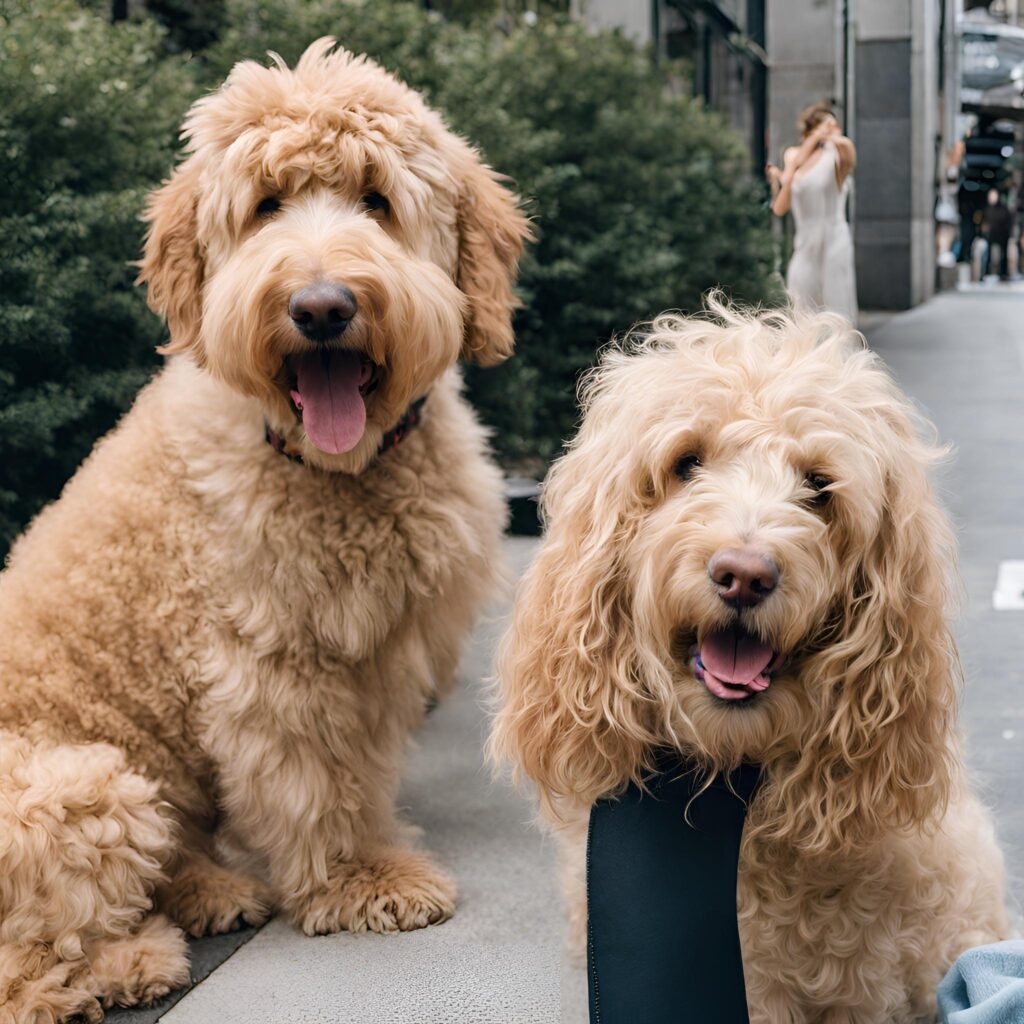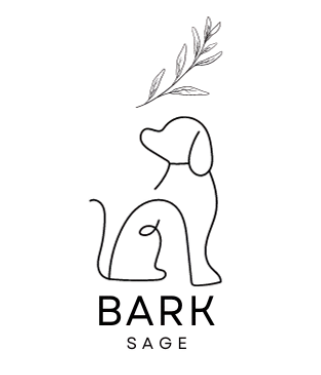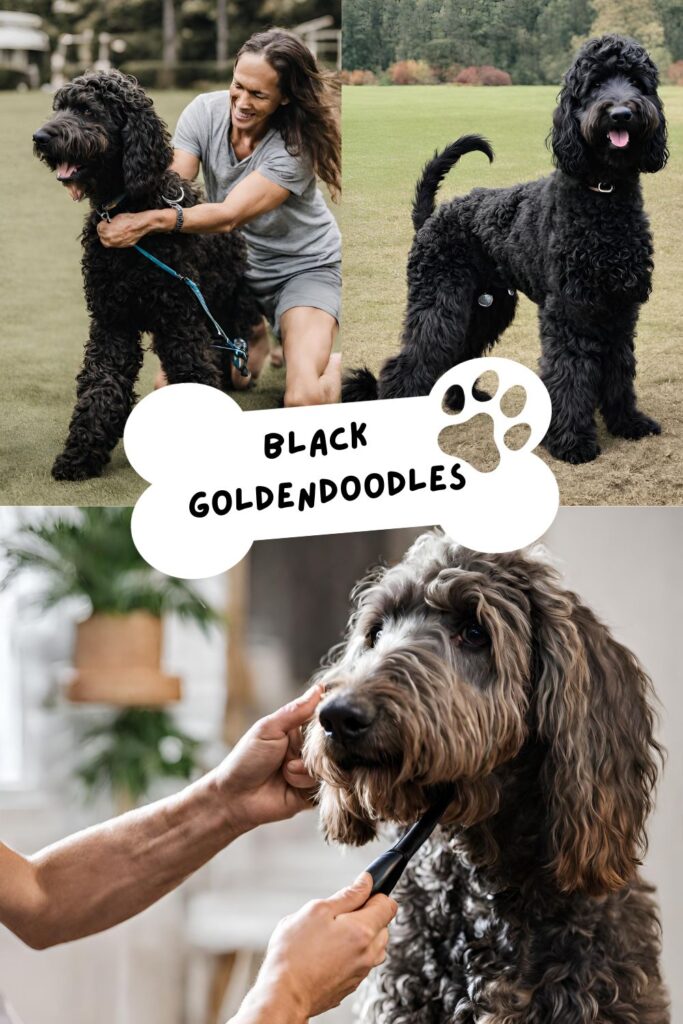
Before delving into “Are Goldendoodles Hypoallergenic? it’s essential to understand the term “hypoallergic.” Contrary to popular belief, it doesn’t mean completely allergy-free.
Instead, hypoallergic refers to breeds that are less likely to cause allergies in individuals prone to pet-related sensitivities.
Are Goldendoodles Hypoallergenic Dogs, or Not?
The answer to the question “Are Goldendoodles Hypoallergenic Dogs?” is nuanced. While they are known to produce fewer allergens than some other breeds, individual reactions can vary. It’s crucial to consider specific factors that influence allergenicity, such as grooming practices, environmental factors, and the generation of the Goldendoodle.
The Reality of Allergies: What Triggers An Allergy To Dogs (Even Goldendoodles)?
Understanding what triggers allergies to dogs is key to managing them effectively. Allergies are typically caused by proteins found in a dog’s skin cells, urine, and saliva. While Goldendoodles may produce fewer allergens due to their curly coats, it’s essential to recognize that no dog breed is entirely hypoallergenic.
So What Are The Chances You’ll Be Allergic To Goldendoodles?
The likelihood of developing allergies to Goldendoodles depends on individual sensitivities, the specific generation of the Goldendoodle, and the extent of exposure. While some people may experience minimal allergic reactions, others might find that certain grooming practices and environmental factors significantly influence their susceptibility.
Allergies to dogs are primarily triggered by proteins found in their saliva, urine, and dander (tiny flakes of skin). While Poodles and some other breeds may produce fewer allergens, individual reactions can vary. Some people with allergies might tolerate certain breeds better than others, but it’s not guaranteed.
Goldendoodle Coat Types:
One factor contributing to the confusion is the variability in Golden Doodle coat types. These dogs can have curly, wavy, or straight coats, and the amount of shedding varies among individuals. While curly-coated Golden Doodles tend to shed less and produce fewer allergens, there’s no guarantee that they will be hypoallergenic for everyone.
Does Coat Type Matter?
One common misconception about Goldendoodles is that their curly coats automatically make them non-shedding. While it’s true that the curly coat of many Goldendoodles can reduce the amount of loose hair in the environment, it doesn’t guarantee that they are entirely hypoallergenic. Shedding is influenced by various factors, and understanding these factors is crucial for potential dog owners.
Does Generation Matter?
The generation of a Goldendoodle—whether it’s an F1, F1B, F2, or beyond—can impact its hypoallergenic qualities. Understanding the significance of each generation is crucial for those seeking a Goldendoodle with specific characteristics, including reduced allergenicity.
Dander and Grooming:
Even though Golden Doodles might shed less than some other breeds, they still produce dander. Regular grooming is essential to manage shedding and reduce the amount of loose hair and dander in the environment. Frequent brushing, baths, and maintaining good coat hygiene can help minimize allergens. To learn more about Goldendoodle shedding, check out this blog post: Goldendoodle Shedding: 10 Fascinating Ways to Manage Shedding
Allergy Testing and Exposure:
If you or someone in your household has allergies, it’s crucial to spend time with a Golden Doodle before bringing one into your home. Allergy testing can also help identify specific triggers. Some individuals may find that they can tolerate certain breeds better than others.
Managing Allergies with Goldendoodles:
– Regular Grooming:
Keep up with a consistent grooming routine to minimize shedding and dander.
– Allergy-Friendly Environments:
Use air purifiers, clean regularly, and designate specific areas for the dog to minimize exposure in allergic individuals.
– Consult with a Veterinarian:
If allergies are a concern, consult with a veterinarian who can provide guidance on managing symptoms and recommend specific breeds or individual dogs that might be better tolerated.
– Bathe Them Often
Regular baths can help reduce the amount of loose hair and dander on a Goldendoodle’s coat. Using a hypoallergenic shampoo specifically designed for dogs can further minimize skin irritants.
-But Brush Them More
Frequent brushing is essential to prevent matting and reduce shedding. It helps remove loose hair before it falls off, keeping the environment cleaner and minimizing potential allergens.
-Time for a Haircut!
Trimming a Goldendoodle’s coat can also contribute to allergy control. Shorter hair is less likely to trap allergens, making it easier to maintain a clean and allergen-free living space.
Navigating Allergies: Can You Own a Goldendoodle if You’re Allergic to Dogs?
The desire for a canine companion often faces a hurdle for individuals with dog allergies. Enter the Goldendoodle, a crossbreed touted for its hypoallergenic traits. But, can you truly own a Goldendoodle if you’re allergic to dogs? In this article, we’ll explore the nuances of dog allergies, the hypoallergenic reputation of Goldendoodles, and practical considerations for individuals hoping to welcome one into their homes.
Understanding Dog Allergies:
Dog allergies typically result from proteins found in a dog’s saliva, urine, and dander. These proteins can trigger reactions ranging from sneezing and itching to more severe respiratory issues in sensitive individuals. While some breeds are considered more allergy-friendly due to their low-shedding and low-dander coats, no dog is entirely hypoallergenic.
So What Are The Chances You’ll Be Allergic To Goldendoodles?
The likelihood of developing allergies to Goldendoodles depends on individual sensitivities, the specific generation of the Goldendoodle, and the extent of exposure. While some people may experience minimal allergic reactions, others might find that certain grooming practices and environmental factors significantly influence their susceptibility.
The Goldendoodle’s Hypoallergenic Reputation:
Golden Doodles are often marketed as hypoallergenic dogs, inheriting this trait from their Poodle ancestry. Poodles have hair rather than fur and shed less, contributing to a lower allergen profile. However, it’s crucial to note that individual responses to allergens vary, and what works for one person may not work for another.
Considerations for Allergic Individuals:
1. Individual Allergy Sensitivity:
The first step is to understand the specific nature and severity of your allergies. Spend time around Golden Doodles to gauge your reaction and consider allergy testing to identify specific triggers.
2. Goldendoodle Coat Types:
Golden Doodles come in different coat types, including curly, wavy, and straight. Curly-coated Doodles often shed less and produce fewer allergens. Spend time with dogs of varying coat types to assess your tolerance.
3. Grooming Practices:
Regular grooming is paramount to managing allergens. Brushing, bathing, and maintaining good coat hygiene can help reduce loose hair and dander in the environment.
4. Trial Period:
Before committing to owning a Goldendoodle, consider a trial period. Spend extended time around the breed to observe how your allergies respond and whether management strategies are effective.
5. Veterinarian Consultation:
Consult with a veterinarian, especially one experienced in allergies. They can provide insights into managing symptoms, recommend specific breeds or individual dogs, and offer guidance on creating an allergy-friendly environment.
Practical Steps for Managing Allergies:
1. Designate Allergy-Free Zones:
Create specific areas in your home that are kept dog-free to minimize exposure in allergy-sensitive spaces.
2. Air Purifiers:
Use air purifiers to help reduce airborne allergens, and invest in a vacuum cleaner equipped with a HEPA filter to minimize allergen accumulation.
3. Allergy Medication:
If deemed safe by a healthcare professional, consider using allergy medications to manage symptoms.
4. Regular Veterinary Check-Ups:
Ensure your Goldendoodle receives regular veterinary care to address any potential health issues that might exacerbate allergic reactions.
When it comes to Goldendoodles, the term “generation” refers to the dog’s lineage and the mix of parent breeds. The most common generations of Goldendoodles are F1, F1B, and multigenerational (F2 and beyond). While the hypoallergenic qualities can vary among individual dogs, certain generations are often considered more hypoallergenic due to the influence of Poodle genetics. Here’s a brief overview of each generation:
1. F1 Generation (First Generation):
– Parent Breeds: Golden Retriever (F) x Poodle (M) or Poodle (F) x Golden Retriever (M)
– Coat Types: Varies; can be straight, wavy, or curly.
– Hypoallergenic Potential: Moderate; the degree of shedding and allergenicity varies among individuals.
2. F1B Generation (First Generation Backcross):
– Parent Breeds: F1 Goldendoodle x Poodle
– Coat Types: Typically curly or wavy.
– Hypoallergenic Potential: Higher; F1B generations are more likely to have a curly coat, which tends to shed less and produce fewer allergens.
3. Multigenerational (F2 and Beyond):
– Parent Breeds: Goldendoodle x Goldendoodle or Multigenerational x Multigenerational
– Coat Types: Can be curly, wavy, or straight; more consistent in coat characteristics.
– Hypoallergenic Potential: Generally higher; multigenerational breeding aims for consistency and often includes more Poodle genetics.
While the F1B and multigenerational generations are often considered more hypoallergenic due to the increased Poodle influence, it’s important to remember that individual variation plays a significant role. Factors such as coat type, grooming practices, and the specific allergens produced by an individual dog can impact its hypoallergenic qualities. Additionally, spending time with a specific dog before bringing it into your home is crucial for individuals with allergies to assess their personal tolerance. Regular grooming and maintenance are also essential to minimize shedding and dander in any dog.
Owning a Goldendoodle with dog allergies is indeed possible, but it requires careful consideration, planning, and, most importantly, a realistic understanding of individual sensitivities. By taking proactive steps, such as spending time with the breed, managing grooming effectively, and seeking professional advice, you can potentially enjoy the companionship of a Goldendoodle while minimizing the impact of allergies. Always consult with healthcare professionals and veterinarians for personalized guidance tailored to your specific situation.
While Goldendoodles may be more suitable for individuals with allergies compared to heavy-shedding breeds, it’s essential to approach the hypoallergenic claim with caution. The degree of allergenicity varies among individuals, and there’s no one-size-fits-all solution. Spending time with a Goldendoodle, understanding your specific allergy triggers, and maintaining good grooming practices are key steps in managing allergies while enjoying the companionship of these delightful dogs.



Pingback: What is a Red Goldendoodle?: Discover 5 Things to know about Red Goldendoodle - barksage.com
Pingback: How is the Goldendoodle Temperament?: 7 Playful and Affectionate Facts - barksage.com
Pingback: How Often Do Goldendoodles Shed: 10 Fascinating Ways to Manage Shedding
Pingback: Goldendoodle Haircut Styles: Discover 5 Trendy Hairstyles